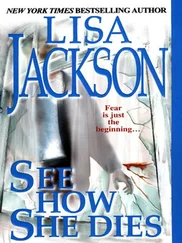Later, in the emergency room, he sat near a large tinted window and could feel the day’s heat through the glass. Another man sat nearby, cupping his limp arm at the elbow as if cradling an infant’s head. He signed in at the desk and a pregnant Hispanic nurse wearing slippers helped him navigate the maze of cubicle rooms.
Sam was born in this hospital. She’d developed an infection from breathing meconium during a long, difficult delivery, so they’d put her in the neonatal ICU for two weeks to treat it, strapped a tangle of wires to her chest and head to monitor her vitals. She was stout compared with the other babies there. Premies not any bigger than potatoes — they were even swaddled in aluminum foil to keep their heat in. It scared him to think something so tiny could still be a human being. Some of them had been there for months because of heart ailments, kidney problems, or congenital defects that wouldn’t allow them to breathe on their own. The terrible, contingent life of these infants, the wires, the constant beeping and buzzing alarms, warning of some impending failure, made him constantly on edge. Everything in the neonatal ICU — a room festooned with the false cheer of newborn blues and pinks — seemed to partially negate the future. The thought of Sam forever dependent on machines and nurses and catheters made his throat constrict at night. He heard her raw-throat crying in his dreams. His wife, recovering in a nearby room from a torn cervix, would ask him for a report after the midnight feeding. “How’s our sweet baby girl?” she’d ask from beneath the tide of sedatives. “Dreaming of her momma,” he’d say.
A number of the premies wouldn’t survive. An intern had told him this while eating a sandwich at the nurses’ station. There was a point at which the parents — often sleep deprived, living in a fog — had to make a decision. Jack also remembered the hospital chaplain, a chain-smoker, telling him that one of the premies — his heart malformed and too weak for surgery — had completely baffled the neonatologists. Miraculously, the chaplain said, his body had “learned” to reroute his oxygenated blood to his brain through a system of collateral arteries. But to Jack this seemed only a reprieve, a story of deferred grief that made the later one even harder to bear. He remembered his grandfather’s stories of families during the 1918 flu pandemic waiting to name their children until it was clear they’d make it to their first birthday. When Jack would take bottles of his wife’s breast milk into the ICU to feed Sam, he’d see the parents of the critical premies coming and going in their ill-fitting visitor scrubs, their bright, haggard faces. They seemed like castaways who didn’t know they’d been abandoned. And seven years later, in the weeks leading up to his wife’s death from a brain aneurysm, he knew he’d worn that same expression on his pilgrimages. He’d made any bargain, buoyed any false hope, explained away, even at the end, the inevitable signs of his wife’s body shutting down.
Jack knew now that luck was unearned — arbitrary, even. But in the ICU with his daughter those early weeks, surrounded by premies swaddled in aluminum foil, he’d studied the tiny maps of capillaries on Sam’s eyelids and considered himself a fortunate man.
In the emergency room, Jack found Sam tucked away in one of the cubicles, sitting on the lip of the bed. He hugged her before she could get up, and she stiffened, then gave in. She was shaking.
“It’s just the adrenaline after the accident,” he said. “It goes on awhile.” She held up a trembling hand and laughed. Shiny flecks of glass were embedded in the reddened skin below her knuckles.
Jack’s heart rattled in his chest to see her scared.
She looked at him. “The deer just leaped out in the road.”
“How fast were you going?”
“Not fast. No faster than normal.”
“Were you smoking hash?”
“Jesus. Dad. No.”
“I have to ask that.”
“You don’t have to ask.”
“Where did the stuff in the console come from?”
“Who knows — one of Adrian’s friends, probably.”
“The one-handed man.”
“I have broken glass in my hand.” She waved it in front of him.
“It should be a reminder,” he said, and thought of her plunging headfirst through the windshield, hair and blood. His legs weakened.
“Is that what you tell burned people? This should be a reminder?”
“If they’re the ones who started the fire, sure.”
She was suddenly silent, and he knew she was thinking of the ice cream shop. He leaned forward and kissed the top of Sam’s head. She’d always been lucky. Always favored. Which made him worry all the more.
8 Chapter 8 Chapter 9 Chapter 10 Chapter 11 Chapter 12 Chapter 13 Chapter 14 Chapter 15 Chapter 16 Part II Chapter 17 Chapter 18 Chapter 19 Chapter 20 Chapter 21 Chapter 22 Chapter 23 Chapter 24 Chapter 25 Chapter 26 Chapter 27 Chapter 28 Part III Chapter 29 Chapter 30 Chapter 31 Chapter 32 Chapter 33 Chapter 34 Part IV Chapter 35 Chapter 36 Chapter 37 Chapter 38 Chapter 39 Chapter 40 Chapter 41 Chapter 42 Part V Chapter 43 Chapter 44 Chapter 45 Chapter 46 Chapter 47 Chapter 48 Chapter 49 Chapter 50 Chapter 51 Chapter 52 Chapter 53 Chapter 54 Chapter 55 Chapter 56 Chapter 57 Chapter 58 Chapter 59 Chapter 60 Acknowledgments About the Author By the Same Author About the Publisher
THIS IS WHAT Rosa Heller, a reporter covering the murders for the Chronicle , remembers: She’s seven years old, walking hand in hand with her dad toward the Lab School on the South Side of Chicago. She’s tall for her age, and in fifth grade she’ll begin to slouch to hide it. It’s early morning, still, and a fog off Lake Michigan clings to the yards and stoops. They stop at a corner grocery that sells the Wacky Packages stickers that she’s obsessed with, and her father gives her money to buy some because she loves him so much. When they turn the corner they walk alongside a vacant lot with a billboard for NuGrape soda and beneath it there’s a large blackened oval in the grass where someone set a fire. She wonders who would do something like that and decides that boys would, just to see what happened. She sees something shiny in the grass that she thinks is a bottle cap for her collection, and so pulls away from her dad and scuffs the dirt and grass with her shoe. She finds a half-dollar-size hoop earring. In the weeds near a metal fence, not twenty feet away, she sees a mustard-colored jacket. Then a brown leather purse, a string of toiletries, a pair of panties, a hair pick, and a compact mirror. Near the compact mirror, a brown hand that once held it. At first Rosa thinks the face staring back from a clump of weeds is a Halloween mask. She looks at her dad to be in on the joke, but he just stares. She can feel her skin prickle, but it takes a while for her to realize that it’s a woman’s face, missing nose and ears.
Rosa’s dad, Peter, was a politics reporter for the Chicago Tribune. They lived with her mother in a partly rehabbed two-flat surrounded by run-down rentals, used car lots, and liquor stores. The area was segregated, but a number of liberal white families, like hers, had moved into it in the late sixties, even given all the turbulence. Even partly because of it. Her parents had participated in freedom marches and seen violence up close. Her dad had had his nose broken. Someone had hit her mother in the head with a D-cell battery. On her dad’s desk at the Tribune she remembered a photo of him between the writer Alex Haley and the actor and activist Ossie Davis, smiling broadly.
Occasionally in their neighborhood someone would overturn a car and set it on fire, which secretly thrilled Rosa — she could often see the glow from her upstairs bedroom window. Her dad took great pains to explain to her that this was a symptom of an illness. Like the chicken pox or a rash? she asked. That’s right, her dad said, a warning on the surface about what was going on inside. There was so much anger that maybe it couldn’t be contained. Better a car than a passerby, he said. Better things than a person.
Читать дальше












